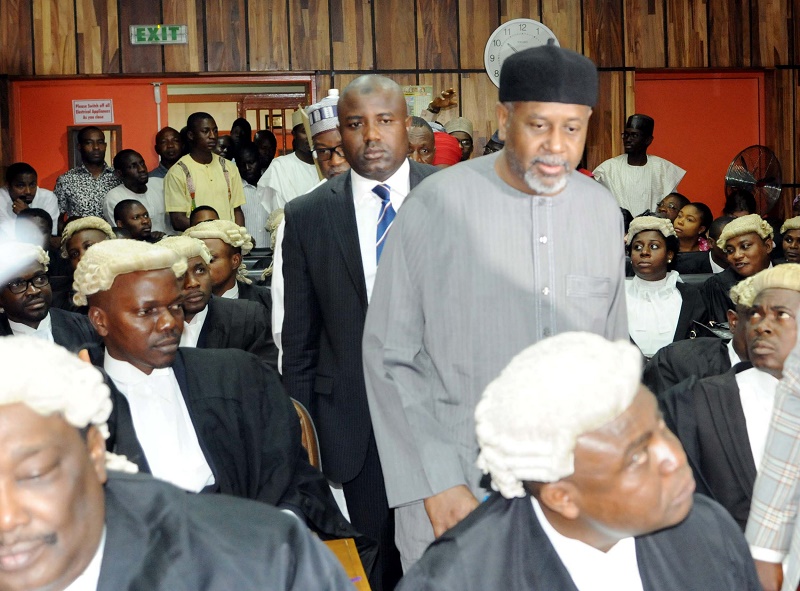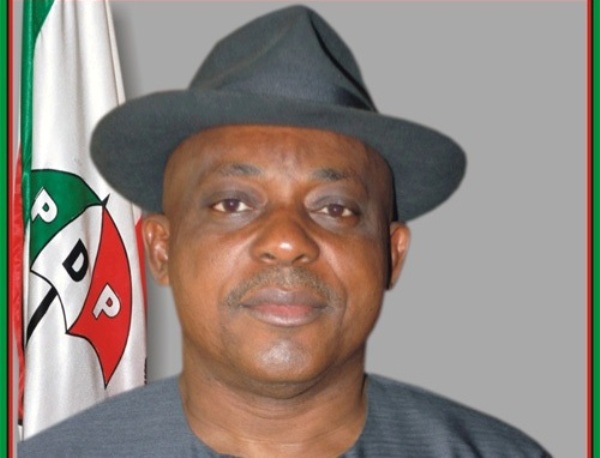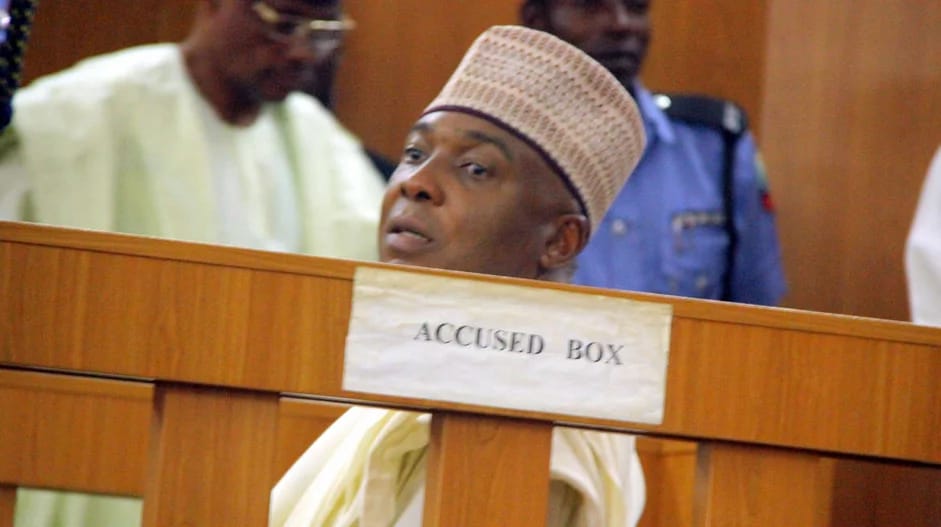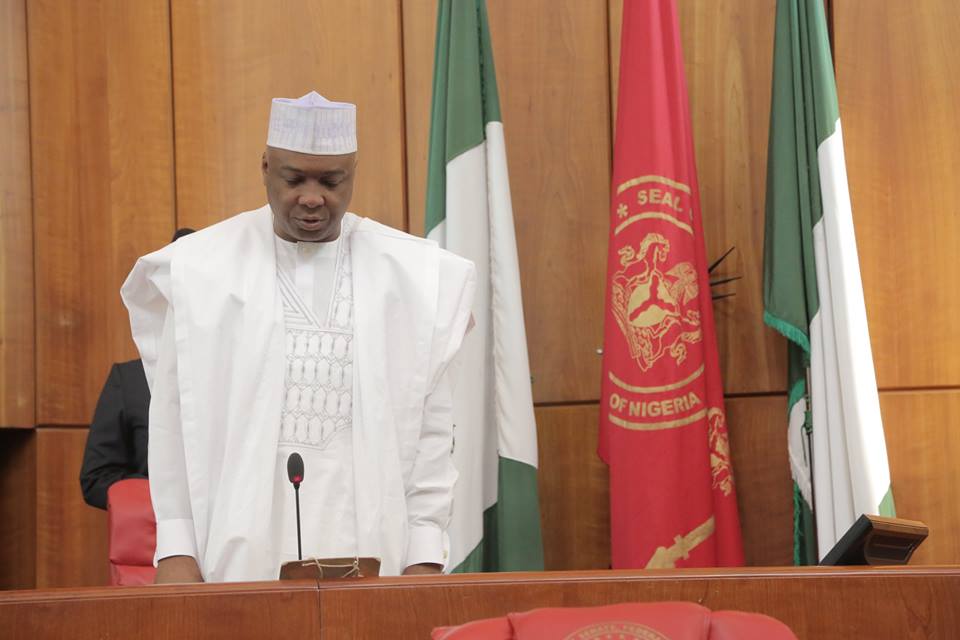The federal capital territory high court will on February 8 rule on whether to discharge or to continue the trial Sambo Dasuki, former national security adviser (NSA), for the criminal charges brought against him by the federal government.
According to PRNigeria, Justice Hussein Baba-Yusuf fixed the date after Joseph Daodu (SAN), counsel to Dasuki, and Rotimi Jacobs (SAN), counsel to the federal government, had addressed the court on a motion praying the release of Dasuki.
In the motion argued by Dasuki’s counsel, the court was asked to prohibit the federal government from further prosecuting him or further seeking any indulgence from the court until he was allowed to enjoy the bail granted him.
Daodu argued that the federal government should not lawfully prosecute Dasuki having been in contempt of the court. He premised his arguments on the fact that Justice Yusuf had granted the defendant bail on December 18, 2015; and after perfecting the bail conditions, he was rearrested allegedly on the orders of the federal government and was taken to the custody of the Department of the State Services (DSS).
He said that since Dasuki was rearrested on December 29 when the bail conditions had been perfected, he had since been kept away from his lawyers and family members.
The counsel therefore urged the court to compel the federal government to obey the bail conditions granted Dasuki and allow him to enjoy the liberty of freedom in line with the law that presumed him innocent until he was proved guilty.
He said the government and his agencies had no moral and legal rights to prosecute Dasuki having been in contempt of three high courts that had admitted him on bail, but which were not obeyed.
Daodu also urged the court to compel the federal government to obey its order and save the judiciary from embarrassment of disobedience.
“Judges must assert the efficacy of their orders,” he said.
However, while opposing the motion, counsel to the federal government, Jacobs, informed the judge that the motion was an abuse of the court process because there was no evidence placed before the court that the accused was rearrested by the Economic and Financial Crimes Commission (EFCC).
Jacobs, who said he was representing EFCC in the case, disclosed that it was the DSS that rearrested Dasuki.
He advised Dasuki to evoke section 46 of the constitution and institute a civil action to challenge his arrest and enforce his fundamental right to his liberty.
Justice Baba Yusuf will deliver his ruling on the motion on Monday.
Add a comment







